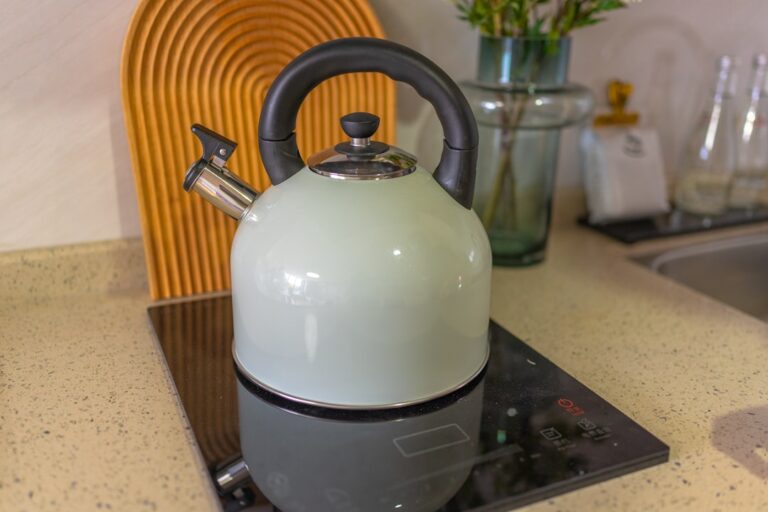In recent years, the popularity of tankless water heaters has surged, capturing the attention of homeowners and builders alike. Unlike traditional water heaters that store a large volume of hot water in a tank, tankless models heat water on demand. This innovative approach not only promises efficiency but also offers a range of benefits that appeal to modern lifestyles.
As the demand for energy-efficient appliances grows, understanding the mechanics and advantages of tankless water heaters becomes increasingly important for those considering an upgrade or a new installation. Tankless water heaters operate by utilizing powerful heating elements that activate when a hot water tap is turned on. This means that users can enjoy a continuous supply of hot water without the limitations imposed by a storage tank.
The technology behind these units has evolved significantly, making them more reliable and effective than ever before. As homeowners seek ways to reduce their energy consumption and lower utility bills, tankless water heaters present an attractive alternative to conventional systems.
Key Takeaways
- Tankless water heaters provide hot water on demand, eliminating the need for a storage tank.
- Pros of tankless water heaters include energy efficiency, cost savings, and space saving.
- Cons of tankless water heaters may include higher initial cost, inconsistent water temperature, and the need for professional installation and maintenance.
- Tankless water heaters are more energy efficient than traditional water heaters, as they only heat water when it is needed.
- Cost savings with tankless water heaters come from reduced energy usage and longer lifespan compared to traditional water heaters.
Pros of Tankless Water Heaters
One of the most significant advantages of tankless water heaters is their energy efficiency. Traditional water heaters continuously heat and reheat water, leading to substantial energy waste. In contrast, tankless systems only heat water as needed, which can result in lower energy bills over time.
This on-demand heating mechanism not only conserves energy but also aligns with the growing trend toward sustainable living. Homeowners who prioritize eco-friendly solutions will find that tankless water heaters contribute positively to their overall energy consumption. Another notable benefit is the longevity of tankless water heaters.
While traditional units typically last around 10 to 15 years, tankless models can have a lifespan of 20 years or more with proper maintenance. This durability means that homeowners may not need to replace their water heater as frequently, leading to less waste and fewer disruptions in their daily lives. Additionally, many manufacturers offer warranties that reflect the confidence in their products’ longevity, further enhancing the appeal of these systems.
Cons of Tankless Water Heaters
Despite their many advantages, tankless water heaters are not without drawbacks. One of the primary concerns is the initial cost associated with purchasing and installing these units. While they can save money in the long run through energy efficiency, the upfront investment can be significantly higher than that of traditional water heaters.
Homeowners must weigh the long-term savings against the immediate financial burden, which can be a deterrent for some. Another potential downside is the need for adequate flow rates. Tankless systems may struggle to provide sufficient hot water if multiple outlets are used simultaneously, such as when several showers are running at once or when appliances like dishwashers and washing machines are in operation.
This limitation can lead to inconsistent hot water availability, which may not meet the demands of larger households or those with high hot water usage.
Energy Efficiency
| Category | Metric | Value |
|---|---|---|
| Residential | Average Energy Use | 10,766 kWh/year |
| Commercial | Energy Star Rating | 75 (out of 100) |
| Industrial | Energy Intensity | 6.7 kWh/sq.ft. |
Energy efficiency is one of the standout features of tankless water heaters, making them an appealing choice for environmentally conscious consumers. These systems utilize advanced technology to heat water only when it is needed, eliminating the standby heat loss associated with traditional tanks. This efficiency translates into lower energy bills, as homeowners only pay for the hot water they actually use rather than maintaining a reservoir of heated water.
Moreover, many tankless models are designed with energy-saving features such as modulating burners and digital thermostats that optimize performance based on demand. This level of sophistication allows for precise temperature control and minimizes energy waste. As energy costs continue to rise, investing in a tankless water heater can be a strategic move for homeowners looking to reduce their carbon footprint while enjoying modern conveniences.
Cost Savings
While the initial investment in a tankless water heater may be higher than that of a conventional unit, the potential for cost savings over time is significant. Homeowners can expect to see reductions in their monthly utility bills due to the energy-efficient nature of these systems. According to various studies, users can save anywhere from 20% to 40% on their water heating costs compared to traditional models.
Additionally, the longevity of tankless systems contributes to overall cost savings. With a lifespan that often exceeds two decades, homeowners can avoid frequent replacements and the associated costs of installation and disposal. When considering both energy savings and reduced replacement frequency, it becomes clear that tankless water heaters can be a financially sound investment in the long run.
Space Saving
Another compelling advantage of tankless water heaters is their compact size, which allows for greater flexibility in installation locations. Traditional water heaters require significant floor space due to their bulky tanks, often limiting placement options within a home. In contrast, tankless units can be mounted on walls or installed in smaller spaces such as closets or utility rooms, freeing up valuable square footage for other uses.
This space-saving design is particularly beneficial for urban dwellers or those living in smaller homes where every inch counts. By opting for a tankless system, homeowners can maximize their living space while still enjoying the convenience of on-demand hot water. The ability to install these units in various locations also opens up opportunities for creative home design and layout adjustments.
Endless Hot Water
One of the most appealing features of tankless water heaters is their ability to provide an endless supply of hot water. Unlike traditional systems that can run out of hot water after prolonged use, tankless models heat water on demand, ensuring that users never have to experience the frustration of cold showers or waiting for a tank to refill. This feature is particularly advantageous for larger families or households with high hot water demands.
The continuous flow capability allows multiple fixtures to be used simultaneously without sacrificing temperature or pressure. Whether it’s running multiple showers at once or using appliances like dishwashers and washing machines concurrently, homeowners can enjoy peace of mind knowing that hot water will always be available when needed.
Installation and Maintenance
The installation process for tankless water heaters can vary depending on existing plumbing and electrical systems. While some homeowners may choose to tackle this project themselves, it is often recommended to hire a professional plumber or contractor with experience in installing these units. Proper installation is crucial for ensuring optimal performance and safety, particularly when it comes to gas-powered models that require venting.
Maintenance is another important consideration for tankless systems. While they generally require less upkeep than traditional units, regular descaling and flushing are necessary to prevent mineral buildup and ensure efficient operation. Homeowners should be prepared to perform routine maintenance or schedule professional service to keep their system running smoothly over its lifespan.
Initial Cost
The initial cost of purchasing and installing a tankless water heater can be a significant factor for many homeowners. Prices for these units can range widely based on brand, capacity, and features, often starting at several hundred dollars and reaching into the thousands when installation costs are included. This upfront investment can be daunting, especially for those who are accustomed to the lower price points associated with traditional storage tanks.
However, it is essential for homeowners to consider this initial cost in the context of long-term savings. While the upfront expense may be higher, the potential for reduced energy bills and longer lifespan can offset these costs over time. For those who plan to stay in their homes for many years, investing in a tankless system may ultimately prove to be a wise financial decision.
Inconsistent Water Temperature
Despite their many benefits, some users report experiencing inconsistent water temperatures with tankless systems. This issue often arises when multiple outlets are used simultaneously or when there are fluctuations in demand. For instance, if someone is taking a shower while another person runs the dishwasher, the heater may struggle to maintain a consistent temperature, leading to discomfort.
To mitigate this problem, homeowners may need to invest in larger or multiple units to accommodate higher demand situations effectively. Additionally, proper sizing during installation is crucial; selecting a unit that matches the household’s hot water needs can help ensure consistent performance and satisfaction.
Is a Tankless Water Heater Right for You?
In conclusion, whether a tankless water heater is right for an individual homeowner depends on various factors including budget, household size, and hot water needs. The numerous advantages such as energy efficiency, cost savings over time, space-saving design, and endless hot water make these systems an attractive option for many consumers. However, potential drawbacks like initial costs and inconsistent temperature delivery must also be carefully considered.
Homeowners should evaluate their specific circumstances and preferences before making a decision. For those who prioritize sustainability and long-term savings while enjoying modern conveniences, investing in a tankless water heater could be an excellent choice that enhances both comfort and efficiency in their home environment. Ultimately, understanding both the pros and cons will empower homeowners to make informed decisions that best suit their lifestyles and needs.
FAQs
What are the pros of a tankless water heater?
– Tankless water heaters are more energy efficient than traditional tank water heaters, as they only heat water when it is needed.
– They take up less space than traditional tank water heaters, as they are typically wall-mounted and do not require a large storage tank.
– Tankless water heaters have a longer lifespan than traditional tank water heaters, often lasting 20 years or more.
– They provide an endless supply of hot water, as they heat water on demand rather than relying on a limited tank capacity.
What are the cons of a tankless water heater?
– Tankless water heaters can be more expensive to purchase and install than traditional tank water heaters.
– They may require a larger upfront investment for installation, as they may need upgrades to gas lines or electrical systems to accommodate the higher energy demand.
– In some cases, tankless water heaters may struggle to provide hot water to multiple fixtures at once, especially in larger households.
– Tankless water heaters may require regular maintenance, such as descaling, to prevent mineral buildup and maintain efficiency.






